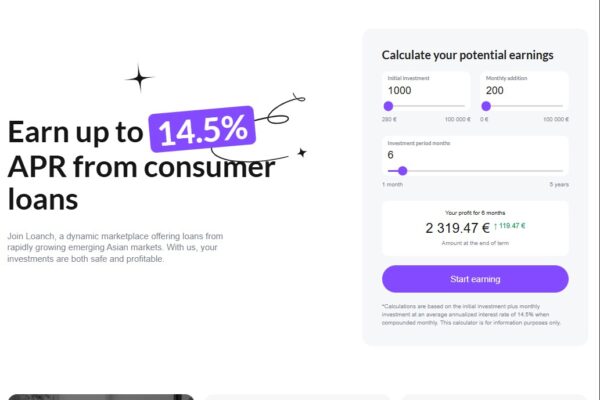VivoHolding.io Scam Review – A Fictional Investment Model
The Unauthorized Trading Platform Operating Outside the Law
In the modern digital economy, the lines between legitimate investment opportunity and sophisticated financial fraud are often blurred. Platforms that emerge rapidly, presenting polished, professional websites and making grand promises of swift financial growth, require the highest level of scrutiny. Vivo Holding, operating at the domain vivoholding.io, is one such entity that, upon critical inspection, reveals a fundamental and life-threatening flaw: a complete absence of legitimate regulatory oversight.
This in-depth review is not a critique of customer service or trading spreads; it is a serious examination of the platform’s legality and operational safety. The overwhelming evidence shows that Vivo Holding is unauthorized, unsafe, and extremely high-risk, aligning perfectly with the profiles of classic investment schemes designed to extract and permanently withhold client capital. This analysis will break down the structural reasons why engaging with vivoholding.io is a financial decision with potentially devastating, unrecoverable consequences.
The Core Problem: Zero Regulation, Zero Safety
In the world of finance, regulatory authorization is not merely a formality—it is a mandatory shield that protects the investor. Top-tier global regulators—such as the Financial Conduct Authority (FCA), the Securities and Exchange Commission (SEC), the Australian Securities and Investments Commission (ASIC), or CySEC in Europe—impose rigorous standards on any firm handling client money. These standards cover everything from corporate transparency and financial stability to ethical conduct and mandatory client protection.
Vivo Holding fails this fundamental test.
A comprehensive sweep of global financial regulatory databases confirms that the entity behind vivoholding.io does not possess the necessary licenses from any major, reputable governing body. This absence of oversight means that every claim the platform makes, from its capital reserves to its trading technology, is entirely unverified and untrustworthy.
When a platform is unregulated, the investor loses every essential safeguard:
1. The Absence of Fund Segregation
Licensed brokers are legally mandated to keep client funds in segregated, ring-fenced bank accounts, entirely separate from the company’s operating capital. If a regulated firm faces financial distress or bankruptcy, these client funds remain protected. Vivo Holding is under no such legal obligation. Your deposit is immediately co-mingled with the firm’s operational funds—or, more accurately, with the scheme operator’s personal accounts—making your capital vulnerable to being used for non-investment purposes, or simply disappearing overnight.
2. The Death of Legal Recourse
The single most terrifying aspect of dealing with an unauthorized platform is the lack of legal recourse. If your withdrawal is denied, your account is suddenly frozen, or the platform vanishes, you have no official avenue for complaint or compensation. You are left entirely at the mercy of the operators.
- You will not have access to any official Financial Ombudsman or third-party dispute resolution service.
- Your money will not be covered by any Investor Compensation Scheme, meaning the loss is final and absolute.
The legal reality is that an unregulated firm operating from an unknown or offshore jurisdiction is virtually untouchable by foreign consumer protection laws.
The Anatomy of the Deception: How the Scheme Operates
Unauthorized platforms rarely present themselves as scams; they present themselves as exceptional opportunities. The business model, refined over years of successful fraud, follows a predictable and psychologically manipulative sequence.
Phase 1: The Initial Lure and Hook
The connection is often made through aggressive, unsolicited marketing, such as cold calls, targeted social media ads, or emails claiming incredible “insider” opportunities. The initial investment requested is usually manageable—enough to show commitment, but not so large as to immediately trigger alarm bells.
The goal here is simply to get the investor “in the door” and create a digital footprint on their platform.
Phase 2: The Illusion of Extraordinary Returns
Once the initial deposit is made, the client is directed to a personal dashboard on the Vivo Holding website. This dashboard is the heart of the scam. It is a fictional interface that is not connected to any real market trading. Instead, it is programmed to show rapid, extraordinary profits, often claiming returns that are mathematically impossible under normal market conditions.
This visual and immediate confirmation of success is a powerful psychological tool. It instills an overwhelming sense of trust in the platform and the assigned “account manager.” It fosters the belief that the system is genuinely working and that a fortune is within easy reach.
Phase 3: The High-Pressure Capital Injection
The “account manager”—who is, in reality, a sales agent trained in coercive and high-pressure tactics—then pressures the investor relentlessly to increase their deposit significantly. The urgency is always presented with highly manipulative language:
- “You need to deposit immediately to qualify for the institutional-grade algorithm.”
- “We have a time-sensitive opportunity that will triple your balance overnight, but you must fund the account today.”
- “Your current balance is too small to withstand market volatility; you need a cushion.”
The investor, blinded by the sight of their fictional multi-thousand-dollar profit, often succumbs, liquidating real assets or taking out loans to fund the account, believing they are securing a guaranteed windfall.
The Ultimate Extortion: The Withdrawal Trap
The fraud culminates when the investor attempts to withdraw their profits. This is the moment the helpful facade of Vivo Holding instantly dissolves into hostility and obstruction.
The Non-Negotiable Barrier
The withdrawal request is met not with a payment, but with an unexpected financial demand. The platform will insist that the client must pay a large, non-refundable sum of money before the withdrawal can be processed. This demand is usually disguised as:
- “Regulatory Compliance Tax”
- “Anti-Money Laundering Insurance Premium”
- “Profit Transfer Fee”
This is the ultimate red flag: No legitimate financial brokerage requires a client to pay their tax or a fee directly to the broker to release their own funds. In any legitimate transaction, taxes are either withheld by the regulated institution or managed by the client through their national tax authority after the funds are received. This demand is purely a final act of extortion to extract the last possible dollar from the victim.
The Use of Identity Theft and Remote Access
Compounding the financial loss is the severe threat to personal security. Unregulated entities frequently demand extensive Know Your Customer (KYC) documentation, including copies of passports, utility bills, and driver’s licenses. This is dangerous because:
- Data Theft: This sensitive personal information can be sold on the dark web or used to open credit cards and bank accounts in the victim’s name.
- Remote Control: Scammers often pressure clients to install remote desktop software (such as AnyDesk) under the guise of “fixing” a technical issue or “assisting” with the withdrawal. This grants the fraudster full, unfettered access to the victim’s computer, allowing them to steal passwords, transfer money from real bank accounts, and compromise other financial services. Any request for remote access is a critical, unmissable signal of fraud.
Final Verdict: The Danger is Real
The collective evidence against Vivo Holding (vivoholding.io)—its unauthorized status confirmed by global safety analysts, its lack of investor protection, and its operational model that perfectly matches the typical investment scam blueprint—warrants an unequivocal warning.
Any person considering an investment with this entity must prioritize safety over the lure of impossible returns. The risks are absolute, the protections are non-existent, and the potential for total loss of capital is extremely high. The most financially sound decision an investor can make in this situation is to heed the clear warnings and avoid this platform entirely. Your money is not safe with an unregulated entity.
Report VivoHolding.io Scam and Recover Your Funds
If you have lost money to VivoHolding.io Scam, it’s important to take action immediately. Report the scam to Jayen-consulting.com, a trusted platform that assists victims in recovering their stolen funds. The sooner you act, the better your chances of reclaiming your money and holding these fraudsters accountable.
Scam brokers like VivoHolding.io continue to target unsuspecting investors. Stay informed, avoid unregulated platforms, and report scams to protect yourself and others from financial fraud.
Stay smart. Stay safe.






